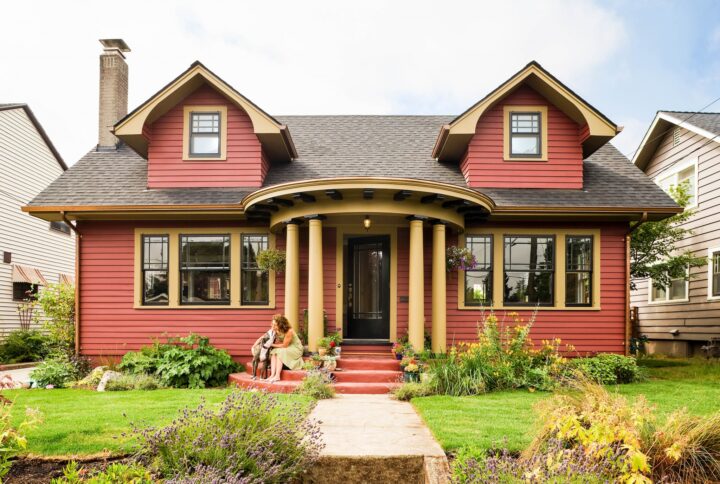How to Shop for a Mortgage


Written by Alycia Lucio on June 17, 2024
Understanding how to shop for a mortgage is essential to getting the right home loan for your financial situation and homeownership goals. With so many types of mortgages to choose from, you’ll want to take time to understand your finances, shop around for rate quotes, explore your loan options, and compare multiple lenders.
Follow these five steps to help you shop for a mortgage. Zillow Home Loans* makes it easy to shop for a mortgage. Check out our loan options or take the first step towards getting a mortgage.*
1. Check your credit score
Your credit history and credit score are important factors in determining the mortgage rates you’ll qualify for and your approval odds. All mortgage lenders will check your credit report and history to see how well you manage debt. A high credit score is a strong indicator that you’re financially responsible and therefore a reliable borrower.
Lenders offering conventional and conforming loans typically require a minimum credit score of 620 to qualify for a loan. Lenders offering non-conforming loans usually require a minimum credit score in the low-to-mid-600s. However, some set their minimums as low as 500-580.
While your credit score isn’t the only financial factor mortgage lenders consider, it will determine which loan options and rates you qualify for in addition to your minimum down payment amount.
2. Review your mortgage loan options
Smart home loan shopping means understanding your options regarding loan programs and mortgage types. Let’s take a look at the mortgage loan options available:
Conventional loans
Conventional loans are offered through a private lender, like a bank, credit union, or mortgage company. Most conventional loans conform to the standards set forth by Freddie Mac and Fannie Mae, which means they aren’t government-backed. For those who qualify, conventional loans also require a minimum credit score of 620 and a minimum down payment of 3%.
However, in order to avoid paying private mortgage insurance (PMI) on these types of home loans, you’ll want to make a down payment of 20% or more.
FHA loans
FHA loans are insured by the Federal Housing Administration (FHA). Since they’re guaranteed by the government, FHA loans are considered non-conforming and have different lending requirements than conventional loans.
With FHA loans, borrowers can qualify with credit scores as low as 500 — although many lenders require a minimum 580 credit score. FHA loans are available with down payments as low as 3.5% of the purchase price.
One drawback of FHA loans is that they require borrowers to pay a mortgage insurance premium (MIP). However, buyers who put down at least 10% of the purchase price can eliminate MIP after 11 years of homeownership with consistent on-time mortgage payments.
VA loans
VA loans are government-backed loans from the U.S. Department of Veterans Affairs (VA). They are available to active-duty service members, veterans and their surviving spouses.
These home loans don’t typically require a down payment or mortgage insurance. Credit score minimums are also flexible depending on the lender, but borrowers are expected to have a credit score of at least 620 and pay a funding fee ranging from 0.5% to 3.6% of the total loan amount. Borrowers who put down more than 5% will benefit from a lower funding fee.
USDA loans
USDA loans are also backed by the government — specifically, the U.S. Department of Agriculture (USDA). These loans require zero down payment and are designed to fund rural housing developments for low-to-moderate-income individuals and families throughout the United States. USDA loans can be used to purchase, build, repair or refinance a home in a rural area.
Since there’s no down payment required, borrowers are expected to pay a guarantee fee and have a credit score between 580 and 620 to qualify. Those eligible for payment assistance, however, may be eligible for interest rates as low as 1%.
Jumbo loans
Jumbo loans are non-conforming mortgage loans with no government backing. They are designed for homebuyers who want to purchase properties with values that exceed the standard 2024 conforming loan limit of $766,550 for a one-unit property; certain counties have a higher loan limit.
Since jumbo loans are guaranteed by the lender, they come with much stricter qualification requirements. For example, the minimum credit score requirement for a jumbo loan is 680 to 720, and lenders will expect you to have at least 12 month’s worth of cash reserves. While most lenders also require a 20% down payment, some only require a minimum down payment of 10% for loans in the amount of $1 million.
Fixed-rate and adjustable-rate mortgages
Within most of the above mortgage loan categories, you’ll also have to decide between a fixed-rate or adjustable-rate mortgage (ARM).
With a fixed-rate mortgage, your interest rate will remain the same for the life of the loan whereas the interest rate for an ARM will have an initial fixed rate and then a rate that changes periodically based on a loan’s terms and conditions and the Secured Overnight Financing Rate (SOFR) Index. ARMs typically offer lower-than-average interest rates during the introductory period, but a fixed-rate mortgage will provide stability throughout the loan term.
3. Explore different mortgage lenders
Where you get a mortgage matters as much as the type of mortgage you apply for. From mortgage rates and qualification requirements to closing fees, what’s offered to you will vary by lender. The same can be said for the level of customer service you’re given.
Commercial banks, credit unions, and mortgage companies are the most common types of mortgage lenders. No matter which lender you choose, you’ll have a dedicated loan officer to guide you through your options and the mortgage process.
If you're having trouble finding a lender, you can also work with a mortgage broker. They’ll connect you with their recommended lenders who can help you find competitive mortgage rates and terms for your financial situation. They also participate in the home loan process, from assessing your loan qualifications to coordinating with real estate professionals.
4. Compare mortgage quotes and select a lender
Once you receive offers from different lenders, you’ll want to compare your options to determine which lender offers the best rates. A recent Zillow survey revealed 63% of mortgage buyers contacted at least two lenders before choosing a mortgage product.
When evaluating your mortgage quotes, be sure to pay close attention to:
- The interest rates that you’ll pay for the life of your mortgage loan
- The loan term
- The annual percentage rate (APR), which reflects the interest rate plus lender fees
- Mortgage points (also known as discount points)
- Lender fees, which can include origination fees, underwriting fees, tax service fees, and more
- The overall loan estimate
When reviewing quotes from each lender, it’s a good idea to use a mortgage calculator to help estimate your total mortgage costs and monthly payment amount. This will help you determine which lender can offer you the best overall value based on your financial situation.
5. Get a mortgage pre-approval
Once you choose a lender that suits your home loan needs, the next step is to apply for mortgage pre-approval. The pre-approval process involves filling out the mortgage application and providing the lender with specific financial documents such as:
- Recent pay stubs and bank statements
- Most recent W2s and tax returns
- A copy of your driver’s license and social security number, or individual taxpayer identification number (ITIN)
- Proof of assets and cash reserves
The lender will pull your credit and review your financial circumstances to determine what you qualify for. If you’re pre-approved, the lender will send you a pre-approval letter that states a conditional loan amount and details, such as loan term, rate and down payment. This shows sellers that you’re serious about making an offer and closing on the home.
Shopping for a mortgage may feel like an overwhelming endeavor, but breaking it down into these steps can make it more manageable — and ultimately rewarding. By assessing your financial situation, understanding your loan options, comparing lenders, and getting mortgage pre-approval, you can shop confidently and secure financing for your next home.
*Zillow Home Loans; An equal housing lender. NMLS #10287
How much home can you afford?
At Zillow Home Loans, we can pre-qualify you in as little as 5 minutes, with no impact to your credit score.
Zillow Home Loans, NMLS # 10287. Equal Housing Lender
Get pre-qualifiedHow much home can you afford?
See what's in reach with low down payment options, no hidden fees and step-by-step guidance from us at
Zillow Home Loans.
Zillow Home Loans, NMLS # 10287. Equal Housing Lender
Calculate your BuyAbility℠



